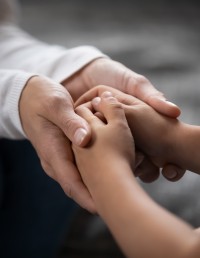NCYL Leads the Movement To Promote Healthy Sexual Development For Youth In Foster Care
NCYL, through policy development, litigation, and implementation of innovative initiatives, has been and remains a consistent leader in the movement to encourage healthy sexual development and address inequitable sexual and reproductive health outcomes among youth in foster care.
NCYL’s work in this area is grounded in the belief that health, education, child welfare and other systems have failed to understand, reach, engage, and guide youth through a sexual and reproductive health journey that meets their needs, circumstances, and goals. And that this leads to disparities in health outcomes, particularly for youth in foster care. NCYL’s work is grounded in a desire to provide youth in foster care with spaces, places, systems and resources that allow them to be themselves and to make confident, informed decisions about their bodies, relationships, sexual and reproductive health, and futures.
NCYL has worked to prioritize and center the sexual health and healthy development of youth in foster care in the following ways:
Using collective impact to tackle complex systems change
In 2017, NCYL convened an innovative collective impact project called the Reproductive Health Equity Project (RHEP) for Foster Youth. Led by NCYL and made up of diverse, multi-sector partner agencies and a youth advisory board, RHEP works to reshape systems so that they normalize, support, and promote the body autonomy and healthy sexual development of youth in foster care.
For more information on RHEP, other innovative programming currently being tested, as well as other resources RHEP offers for foster youth and adults who interact with them, visit fosterreprohealth.org.
Changing laws
NCYL’s legislative efforts to strengthen reproductive health equity for youth in California’s foster care have resulted in new state laws that require:
- Child welfare case workers to ensure foster youth receive the same comprehensive sexual health as all other youth;
- Case workers to inform foster youth of sexual health and education programs and services available to them and remove barriers to access;
- County case workers, certain foster caregivers, and juvenile judges to receive education on how to support the healthy development of youth in care;
- Caregivers to support youth decision-making and access to education and care; and
- The monthly rate paid for parenting minors and non-minor dependents to include an infant supplement.
This string of recent legislative reform began with California’s Foster Youth Sexual Health Education Act, Senate Bill 89, which became state law in 2017. The law requires comprehensive sexual health education for youth in foster care and set new training requirements for foster caregivers, social workers, and judges.
The successful reforms continued in 2021 with the Healthy Futures for Foster Youth Act, Assembly Bill 153, which mandates that infant supplement payments begin three months prior to a child’s due date, rather than after a child is born, and requires county case workers to include in reports to juvenile courts whether youth in the foster system have received comprehensive sexual and reproductive health education.
Prior to AB 153, case workers were required to document information on sexual health education but were not required to provide that information to courts, making it difficult to ensure youth received the care outlined by state law.
Also in 2021, California’s Assembly Bill 172, strengthens reproductive health equity by creating an important data provision that requires the state to tabulate and publish information on key sexual, reproductive and maternal health outcomes for youth in foster care. This data will better ensure foster youth are receiving the health care they need, want and have a right to. Additionally, it will help identify possible disparities in access to care between youth in foster care and youth in the general population, and will be disaggregated by key indicators including race/ethnicity to help identify possible disparities in outcomes within foster care to better target support.
Impact Litigation
NCYL represented five foster youth, the California Planned Parenthood Education Fund, and Planned Parenthood Mar Monte in a lawsuit against a California group home — Planned Parenthood v. Promesa Behavioral Health — that alleged these youth were denied access to confidential reproductive and sexual health care in violation of their legal rights under the California Constitution.
The lawsuit was settled in 2016 when NCYL reached an agreement with the group home provider ensuring that foster youth living in its homes are given access to confidential reproductive and sexual health care. NCYL also reached an agreement with the California Department of Social Services (CDSS) in which CDSS committed to eliminate barriers to reproductive health care and provide foster youth the tools they need to realize their reproductive choices. The agreement re-established and confirmed that foster youth have basic rights to access sexual and reproductive health services and education and that California is committed to making sure youth can exercise these rights.
Highlights of the agreement include changes to regulations and guidance that affirm:
- Foster youth and non-minor dependents in group homes have a right to medical services, including reproductive and sexual health care.
- Such services are confidential and private between the provider and foster youth.
- A foster youth must be provided timely transportation to health-related services.
- A foster youth is permitted to obtain, possess, and use the contraception of his or her choice, including condoms.
- A foster youth is permitted to choose his or her own health care provider.






